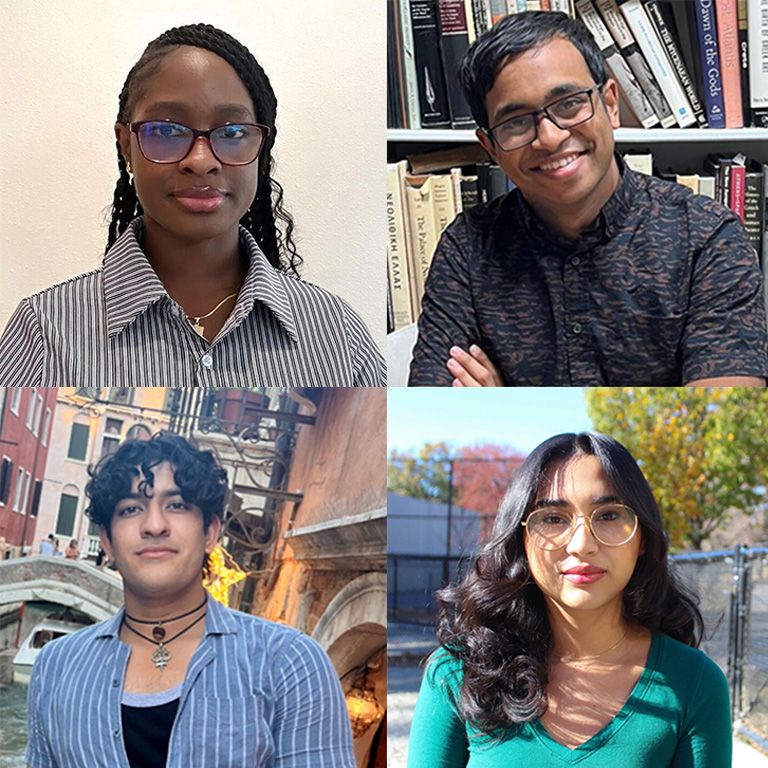 Alexandra Aguirre
Alexandra Aguirre
Between the Fantastic and the Absurd: Andrei Sinyavsky and Soviet Literary Censorship explores Sinyavsky’s works of fiction from the 1950s and 60s in the context of Soviet censorship. Sinyavsky, using the pseudonym Abram Tertz, created works of fantastic realism that were denied publication because they challenged the orthodoxies of socialist realism, and could only be published abroad. The essay explores the significance of Sinyavsky’s trial and conviction for “anti-Soviet agitation,” as a result of his “slanderous” publications outside the Soviet geography and jurisdiction. (Professor Yasha Klots, Russian and Slavic Studies)
Student Outreach: For outreach, Alexandra created a film titled Exploring Censorship: From the Soviet Union to Contemporary Russia, featuring interviews with scholars, former Soviet and Russian journalists, and college students. The film uncovers how states utilize censorship practices (e.g., legal frameworks) and propaganda to infiltrate political spaces and control popular opinion.
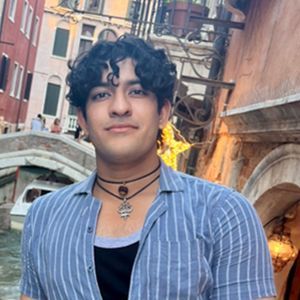 Nishanth Araveti
Nishanth Araveti
Bookshelves & Brain Enhancement: The Capability Approach in Cognitive Enhancement explores the societal implications of neuroenhancers, focusing on issues of accessibility and inequality to pharmaceutical and technological cognitive enhancements. Through the lens of the capability approach, which evaluates humans’ sense of well-being, this paper argues that these modern tools are extensions of historical cognitive aids like libraries. Critiquing the treatment-enhancement divide, it advocates for a different understanding of enhanced cognition – one that seeks to understand it as a means to an end, not as an end itself. (Professor Kyle Ferguson, Philosophy)
Student Outreach: For outreach, Nishanth created a podcast series titled Bookshelves & Braincells, where he discusses the theory behind capability approach, positional goods, and cognitive enhancement, featuring philosophers of bioethics and the capability approach. He also held a public colloquium to discuss his work on the capability approach in the Philosophy Department at Cornell University.
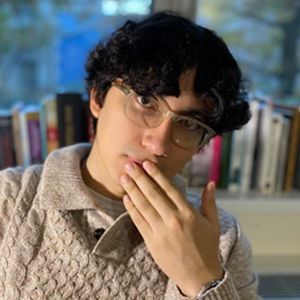 Juda Ato
Juda Ato
Epistemic Injustice in the Bronx explores how marginalized communities are denied resources and platforms for expression. This work draws on philosophical insights from Miranda Fricker and others to analyze the impacts of this injustice. By studying local organizations like the Northwest Bronx Community and Clergy Coalition, this project highlights community-driven solutions to empower residents and amplify their voices in decision-making processes that shape their lives. (Professor Daniel Harris, Philosophy)
Student Outreach: For outreach, Juda worked with the Northwest Bronx Community and Clergy Coalition, whose mission is to engage Bronx residents, particularly youth, in local civic matters. This included visiting schools to introduce students to the platform, collecting votes, assisting with community meetings, and tabling at a library to connect with residents face-to-face.
 Kanishka Awasthi
Kanishka Awasthi
Marginalized Gender Identities, Surveillance of Queerness in India interrogates how colonial-era surveillance, coercion and criminalization transformed pre-colonial gender expressions. In turn, the binary that colonialism produced has continuing effects in the contemporary neocolonial moment. Special focus is on the alienation of LGBTQ+ and Hijra sexually (non-conforming) identities to each other both in India and in the United States. (Professor Deborah Tolman, Women and Gender Studies)
Student Outreach: For outreach, Kanishka created The Gender Handbook, which traces the way gender categories are used in India and the United States. The book archives the definitions of gender categories across multiple languages in order to document the etymology of these categories and share the voice of LGBTQ+ communities in Kanpur, India and New York City with the publics. They also had a book launch event at the Shop of Fools tattoo shop in Greenpoint, Brooklyn, where they presented and hosted a round-table discussion on the book and how the tattoo shop has been a transformative space for the queer community.
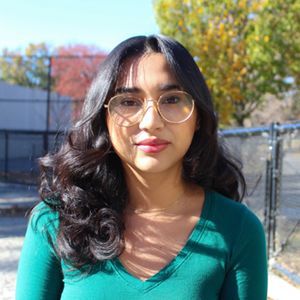 Gabriela Barahona
Gabriela Barahona
The Public Library: Social Capital and Democratic Potentiality explores the idea, history and current status of public libraries. It views public libraries not only as an institution with a mission to cultivate and accumulate knowledge but a space with indispensable social, civic, and reparative functions. (Professor Lazaro Lima, Africana, Puerto Rican, and Latino Studies)
Student Outreach: For outreach, Gabriela partnered with public library goers and librarians at Patchogue-Medford Library in Long Island to create a 10-12 minute documentary film; the film consisted of interviews highlighting the positive impact that local libraries have on underrepresented Latino immigrants in a primarily white county.
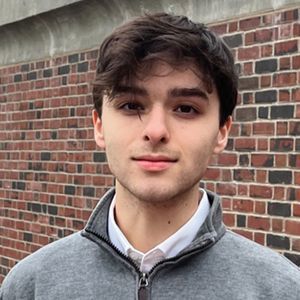 Daniel Cronin
Daniel Cronin
Imperial Plunder: The Untold Story of the Monuments Men in Asia sheds light on a lesser-known chapter of the Monuments, Fine Arts, and Archives Section (MFAA) of the United States Army, familiarly known as the Monuments Men. While the fact that the MFAA recovered over five million looted cultural artifacts in Europe is well known, their efforts in Asia remain largely overlooked. This project investigates the work of the MFAA’s Asia division, exploring why it struggled to recover much of the art looted by Imperial Japan and analyzing the lasting impact of this failure on cultural heritage and regional relations. (Professor Benjamin Hett, History)
Student Outreach: For outreach, Daniel worked with the World Monuments Fund, a non-profit organization dedicated to protecting and preserving cultural heritage sites around the world, supporting site research and communication efforts.
 Candela Cubria-Franco
Candela Cubria-Franco
Autonomous and/or Committed: Capitalism, Adorno, and Socially Engaged Art examines the evolving relationship between art, politics, and capitalism through Theodor W. Adorno’s critiques of politically committed art and the separation of aesthetics from praxis. Utilizing the autonomist framework of immaterial labor, it explores how capitalism has transformed, creating new tensions between autonomy and utility in socially engaged art. By revisiting 20th-century theories on art and politics and analyzing the socioeconomic shifts since the 1970s, the study proposes a reimagined understanding of autonomy for socially engaged practices in today’s art world. (Robyn Marasco, Political Science)
Student Outreach: For outreach, Candela interned at Social Practice CUNY (SPCUNY), an educational network and initiative that supports socially engaged artists across CUNY. She assisted with the production of SPCUNY’s podcast series and worked on editing podcast transcripts for a future publication of SPCUNY texts and materials.
 Kai de la Cruz
Kai de la Cruz
“Niggas Got a Right to be Dissatisfied”: On the Black Grievances Behind the 1968 New York City Teachers’ Strike explores the split between the non-violent mass movement for black civil rights and the emergence of black liberation movements. It uses ethnic and labor studies to analyze schools as sites of racial contestation beyond traditional integrationist narratives. This project rejects the conflation of adjacency to whiteness with progress, asserting that black activists’ political responsibility to black children can and should be fulfilled in predominately black spaces. (Professor Alhaji Conteh, Africana, Puerto Rican, and Latino Studies)
Student Outreach: For outreach, Kai created a photo essay and a publication inquiring about the effects of race based educational reform in Ocean Hill, Brownsville and Bedford-Stuyvesant, Brooklyn. Drawing on conversations with community members and pedagogical practices developed by the Ocean Hill-Brownsville Community-Controlled School Board, she highlights the lineage between the Board and black parents who now inhabit the neighborhood. The publication is a tool for understanding the trajectory of race-based educational reform. It was distributed through community centers, youth groups, schools, afterschool programs, and churches in the Brownsville and Bedford-Stuyvesant areas.
 Luanna Garcia
Luanna Garcia
Graffiti, Legality and Hegemony explores the origins of tagging culture in New York City, its eventual criminalization of graffiti in the 1980s, and the emergence of legally sanctioned spaces such as Wynwood Walls, a Miami museum for street art. This paper distinguishes between the intentions of graffiti and protest art and examines the value of both today. (Professor Rupal Oza, Women and Gender Studies)
Student Outreach: For outreach, Luanna created, For the Millions, a podcast that reflects on the transformation of graffiti from its origins as an unsanctioned act of grassroots resistance to the disruption of its commodification in places like Wynwood Walls. In her first 30-minute episode, she speaks with an MTA Special Inspector about his role as a fare evasion officer, how they respond to vandalism (i.e., graffiti), and his thoughts about the art form in the context of his job and experience growing up in New York City.
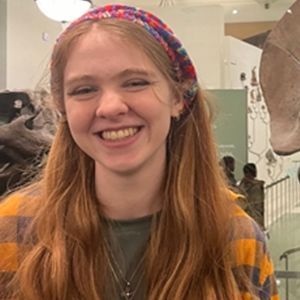 Sophia Guelke
Sophia Guelke
Tubercular Artists: The Romantic Fascination with Tuberculosis and the Modern Starving Artist investigates the work and legacy of John Keats and tracks how he became the archetype of the tubercular poet. Re-examining Keats’ portrayal of the sublime as an experience tied closely to illness reveals the complex relationship between suffering, beauty, and “artistic transcendence.” This essay aims to investigate both how Keats shaped the trope of the starving artist and the inaccuracies and mythologies around his death that contributed to the archetype. (Professor Gavin Hollis, English)
Student Outreach: For outreach, Sophia created a zine focusing on what it means to be an artist during the Covid-19 Pandemic and how artists create in times of distress. The zine contained artwork, poetry, prose pieces, and commentaries from several young artists, contemplating topics like genetic illness, complacency during disaster, and artistic doubt.
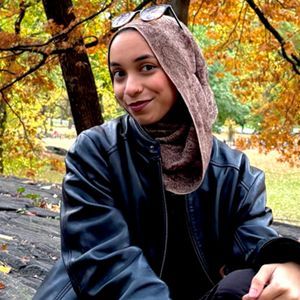 Sanjana Hussain
Sanjana Hussain
Undocumented Citizens: Multigenerational Punishments in Mixed-Status Households examines the impacts of immigration policies in the United States on citizen children of mixed-status families. It argues that U.S. immigration policies induce a distinct form of multigenerational punishment where the repercussions of undocumented status extend beyond the immediate individuals and onto their U.S. citizen children. (Professor Leah Christiani, Political Science)
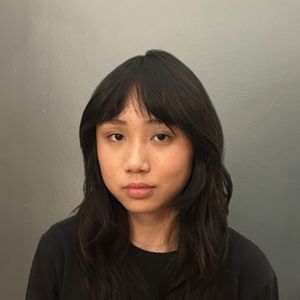 Bridget Li
Bridget Li
Counterterrorism in the Age of Neoliberal Urbanism explores the expansion of surveillance and policing by the New York Police Department after 9/11. Focus is on the realm of exception that security—particularly counterterrorism—occupies in an era of urban governance dominated by neoliberalism and austerity thinking. The paper argues that this expansion, seen in interventions such as the unconstitutional surveillance of Muslim communities, soldiers in subway stations, and defensive architecture, is unjust and fundamentally anti-urban. (Professor Owen Gutfreund, Urban Policy and Planning)
Student Outreach: Outreach consisted of an advocacy internship at the Surveillance Technology Oversight Project. Projects included assisting with developing a one-page cybersecurity and privacy guide to be made available on the organization’s website.
 Brendan O’Connell
Brendan O’Connell
Maus and the Aesthetic of Trauma explores how Art Spiegelman’s seminal graphic novel Maus uses the medium of comics to represent historical atrocity. The paper analyzes how Spiegelman's graphic form layers discourse and artifice to facilitate a greater understanding of historical narratives relative to more indexical forms of documentation, such as war photography. (Professor Sandra Shapshay, Philosophy)
Student Outreach: Outreach consisted of a comic book titled Stories, Horrors: A Closer Look at Witnessing and an accompanying short film. The comic explored the role of media in shaping perceptions of violence. The film is a further exploration of these themes featuring the work of notable nonfiction and political comics artists whose socially minded work uses the medium to encourage critical engagement.
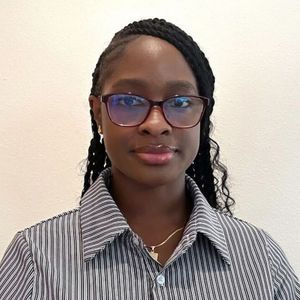 Esther Omolola
Esther Omolola
Reclaiming Visibility: Manifestations of the Oppositional Gaze in Social Media explores how Black women use social media platforms like TikTok and YouTube to reclaim their agency and challenge mainstream notions of Black womanhood. This research draws on the concepts of the oppositional gaze and Black feminist epistemology to argue that social media platforms provide Black women with powerful tools for collective resistance, empowerment, and cultural transformation. (Professor Kelly Nims, English)
Student Outreach: For outreach, Esther created a video essay about how Black women can resist stereotypes and assert control over their own narratives in visual media.
 Artem Pankin
Artem Pankin
Climate Ambition Meets Urban Aspiration: Green Tech and Urban Growth in New York City examines the discursive linkages between green tech and urban growth in recent policy documents focused on climate action. It demonstrates how new urban responses to climate change reflect capitalist dynamics, prioritizing the economic development of cities in order to extract profit from land over all other concerns. (Professor Lily Pollans, Urban Policy and Planning)
Student Outreach: Outreach consisted of a series of infographics, including interactive maps and charts, presenting the analysis of the urban tree canopy on CUNY campuses as part of the internship for the NYC Climate Justice Hub. The materials were posted on the CJH website and were accessible to CUNY faculty, students and staff, NYC Environmental Justice Alliance staff and members, and the general public.
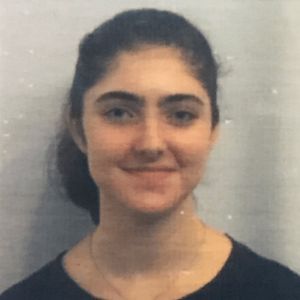 Elena Paraponiaris
Elena Paraponiaris
Ray, Engel, Truffaut and the Postwar “Film of Tomorrow” examines Nicholas Ray’s Bigger than Life (1956), Morris Engel’s Little Fugitive (1953), and François Truffaut’s The 400 Blows (1959) through the lens of the latter’s “film of tomorrow,” Truffaut's polemical call for a more personal and socially-aware French cinema that would follow the direction taken by American studio and independent filmmaking. This study considers the directors’ synthesis of content and composition in the pursuit of an equally personal and socially reflective cinema. (Professor Sam Di Iorio, Romance Languages)
Student Outreach: For the public outreach project, Elena had an internship at the Ruth Orkin and Morris Engel Archive as well as with the American Photography Archives Group (APAG), both managed by Orkin and Engel’s daughter Mary Engel. Elena’s engaged with archival materials in order to reassess Ruth Orkin’s role in Little Fugitive’s production. This internship culminated with the creation of a filmed interview with Mary Engel in which she discussed the importance of restoring her mother’s cinematic legacy.
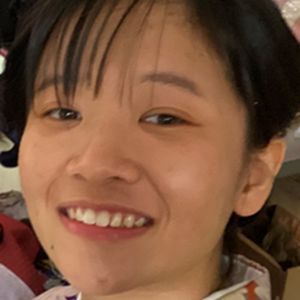 Jinglin Peng
Jinglin Peng
Model Minority Myth and Tiger Mom: Perception or Prevalence? explores the public perception of the Asian "Tiger Mom" and its ties with the Model Minority Myth. The paper suggests that the prevalence and efficacy of "tiger parenting" in Asian American families, especially in Chinese American households, is different from public perception. The project calls into question internalized beliefs adopted by Asian Americans. (Professor Marcia Liu, Asian American Studies)
Student Outreach: For outreach, Jinglin invited three professionals to attend, including licensed a counseling psychologist, a marriage and family therapist, and a licensed social worker to discuss the history and psychological effects of tiger parenting.
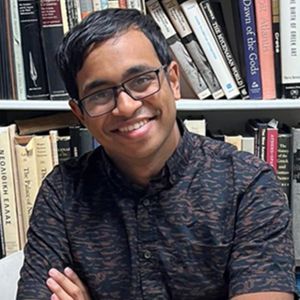 Shounak Reza
Shounak Reza
The Exclusionary Nature of Turkish Nationalism as Reflected in The Bastard of Istanbul and The Club focuses on how the Turkish nation-state, like any other nation-state, is based on imaginary constructs, including the idea of homogeneity. By close reading a novel and a Netflix series, this paper analyzes how monolithic identities are constructed in nation-states, with little attention paid to the fact that identities are more fluid and complicated than what is permitted by the idea of the nation. (Professor Robyn Marasco, Political Science)
Student Outreach: For public outreach, Shounak focused on the history and present of the Turkish Jewish community. He created a short film about way in which Jews were marginalized in the secular Turkish nation-state and arranged a panel discussion with two experts about how the Sephardic community and culture in Turkey underwent changes following the establishment of the Republic.
 Renee Ricevuto
Renee Ricevuto
Girls Who Murder: The Ironic Prima Donna in Opera and Pop Music explores violent representations of girlhood and femininity in both operatic and popular music. Focusing on the coloratura soprano during the eighteenth century and Romantic era, the research highlights figures like the Queen of the Night and Lucia di Lammermoor, then examines them alongside modern singers such as Sabrina Carpenter. The paper's central premise explores how the ironic gender performance Sabrina embodies in her music can be used to restage and reinterpret these operatic heroines. (Professor Catherine Coppola, Music)
Student Outreach: Renee undertook an internship at the Metropolitan Opera Archives finding, cataloguing, and curating materials that were used in the Met's Fall 2025 costume exhibition. She also put together a video on the exhibit that was displayed in public areas of the Met building.
 Shagg Solarz
Shagg Solarz
Emergent Lesbian Politics: the mid-20th Century explores the genesis of Lesbian identity and subculture in the 1950s through 1980s, tracing the transition from the homophile movement of the McCarthy era to post-Stonewall second-wave feminist organizing. While the homophile movement was a civil rights front invested in respectability, the second-wave feminist movement reconciled with conditions which alienated women from cultural, political and economic power, allowing working-class Lesbians to inform emerging Lesbian politics, constituting the framework for the new Lesbian liberation front. (Professor Megan Hicks, Anthropology)
Student Outreach: Outreach consisted of an internship at the Gay Center Archives in the West Village, NY, where Shagg was responsible for processing incoming archival material. Shagg also developed a zine titled Dyke Zine by Zine Dyke: A Zine 4 Dykes by Dykes, in collaboration with self-identified dykes in NYC and at Hunter College. The zine consists of photo, art and poetry submissions from the community.
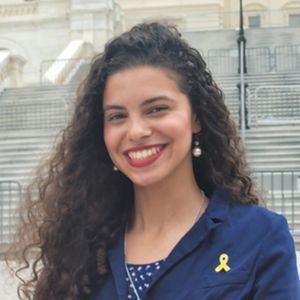 Isabella Youssef
Isabella Youssef
Propaganda and Media Censorship: the Armenian Genocide explores the historical and cultural memory of the Armenian genocide, and focuses on how Turkish propaganda has attempted historically and currently to censor the incident. The essay aims to affirm the importance of reconciliation efforts done at the government level to foster generational healing, awareness, and the prevention of continued acts of discrimination. (Professor Benjamin Hett, History)
Student Outreach: For outreach, Isabella interned at The Charles Malik Institute as a Research Fellow. Malik was a Lebanese diplomat who worked on the United Nations Commission on Human Rights, and Isabella transcribed historical documents and wrote about them.

